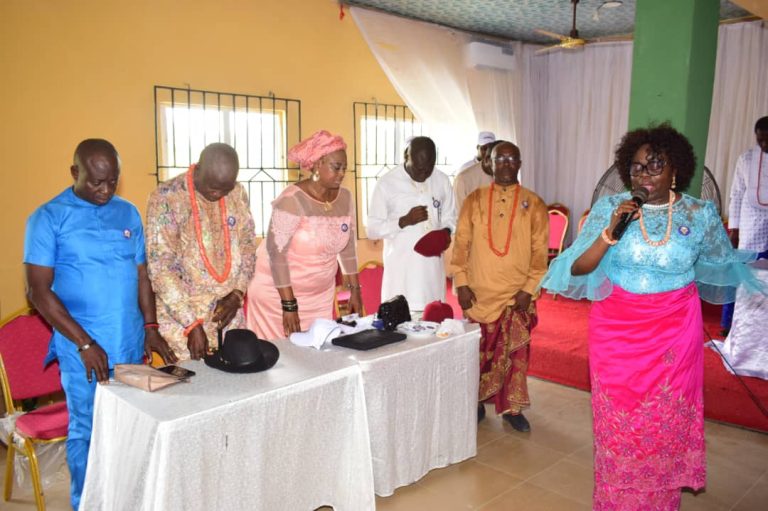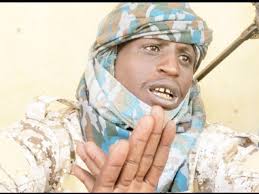
Domestic violence is a global issue that transcends borders,affecting individuals across all continents and virtually all countries, including Nigeria.
Despite some progress made in various spheres,the rate of domestic violence in Nigeria remains alarmingly high, demanding immediate attention.
This article aims to shed light on the complex dynamics of domestic violence in Nigeria,exploring its causes,effects and potential solutions. By raising awareness and fostering dialogue,we can work towards eradicating this cankerworm that undermines human rights and impedes societal development.
Domestic violence, also known as intimate partner violence, encompasses a range of abusive behaviours that occur within intimate relationships. Wikipedia defines domestic violence as “a form of violence or other abuse that occurs in a domestic setting, such as in a marriage or cohabitation.
The Oxford dictionary defines it as “any incidence of violence, threatening behaviour,or abuse(psychological, physical,sexual, financial,or emotional) between adults who are or have been intimate partners or family members,regardless of gender and sexuality.” In Nigeria,men can also experience domestic violence. However,women and children are disproportionately affected,making them the primary victims in most cases.
In Nigeria, domestic violence remains a worrisome issue, affecting millions of people. Nigeria is a heterogeneous country with over 250 million people. According to a research made by Statista;from 2011-2021, Nigeria’s female population amounted to approximately 105.57 million.
According to another research conducted by The Conversation; 1 in 4 Nigerian women has experienced abuse from her intimate partner in her life. Summing up the facts of both researches,one can deduce mathematically that almost 26.4 million Nigerian women have suffered from domestic violence in the country. This is quite disheartening to hear,as Nigerians ought to have a cordial relationship with one another.
It is pertinent for us to know some of the various factors that contributes to its prevalence. These factors include:entrenched gender inequalities,cultural norms,and weak legal reforms among others. Traditional gender roles,which assign women subordinate positions,often perpetuate the belief that violence against women is acceptable.
These cultural norms,coupled with limited access to education,and economic opportunities for women,create an environment conducive to domestic violence.
Furthermore,socioeconomic challenges such as poverty, unemployment,and drug abuse amplify the risk of domestic violence. Poverty has the ability to strain relationships,leading to increased conflict and violence within households. In addition to this,alcohol and drug abuse can exacerbate abusive behaviours,eroding the fabric of family life.
The effects of domestic violence are broad and devastating, affecting individuals, families,and communities. Victims often suffer physical injuries, including broken bones,bruises, and lacerations,which may result in long-term health complications,or even death. Psychological effects,such as anxiety,depression,post-traumatic stress disorder(PTSD),and suicidal tendencies,can significantly impact victims’ mental health.
Children who witness domestic violence often experience emotional trauma that can hinder their social and cognitive development. Growing up in a violent environment,most often than not,normalizes aggression; perpetuating a cycle of abuse across generations. Moreover,the economic repercussions of domestic violence are substantial,as victims may struggle to maintain employment or access resources to support themselves and their children.
Combatting domestic violence requires a multifaceted approach involving individuals, communities,the government and international organizations. Here are some key strategies for addressing domestic violence in Nigeria.
Firstly, people should be made aware and educated about the existence of this problem. Raising awareness about domestic violence and challenging societal attitudes is crucial. Sound educational campaigns should target both women and men, emphasizing the importance of gender equality,respect,and non-violence.
Moreso, the legal frameworks must also be strengthened in order to protect victims and hold perpetrators accountable. The government must enact and enforce laws that addresses domestic violence,and identify it as a crime.
Furthermore, the creation of women’s empowerment programmes will be of immense value in quelling this problem. Women should be empowered through education,skill tutorship and development,and economic opportunities. By doing this,the Government will surely go a long way in reducing this violence;having improved women’s economic independence and social standing.
Also, the government should also provide amenities or infrastructures in order to support and assist survivors of domestic violence in their journey towards healing and recovery. These amenities may include:shelters,hotlines,or even food. The government can also render them the services of counselling and legal aid in other to speed up the recovery of those affected. These services should be accessible, culturally sensitive,and adequately funded.
The government should make efforts to engage men and boys as allies in the fight against domestic violence. They should organized programmes that encourage male role models to challenge traditional notions of masculinity and promote healthy relationships which can help to transform societal norms.
Lastly,the government should also join hands with international organizations to tackle this issue. Nigeria is an affluent country,and is regarded as the most populous Black country in the world. With this affluence,coupled with her membership of various international organizations,such as the UN,AU and ECOWAS, Nigeria can easily seek assistance in resolving this issue.
This can be done through continued sensitization of the effects and causes of domestic violence by these organizations. As Robin Morgan posits,“Knowledge is power. Information is power. The secreting or hoarding of knowledge or information may be an act of tyranny camouflaged as humility.” In this light,awareness should be made about this issue in order to make people more conscious of it.
Conclusively, the issue of domestic violence is impeding seriously Nigeria’s development. In this article,we have successfully ran an overview of this issue and highlighted some potential solutions to it. Personally, I believe that if this issue is carefully studied and if the potential solutions are aptly implemented,there will be a drastic reduction of this problem. As Isaac Asimov puts it,“Violence is the last refuge of the incompetent.” In this light, Nigerians should work with one another in eradicating this pressing issue.
Ogbemudia Ephraim Jedidiah is student of Delta State University, Abraka(Oleh Campus).







